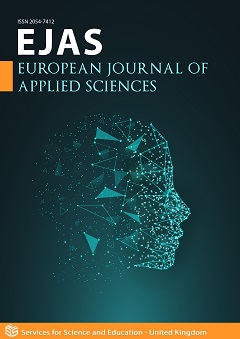A Game Theory Approach for D2d Communication Mode Selection for Terminals Under a Cell
DOI:
https://doi.org/10.14738/aivp.103.12585Abstract
Device-to-Device (D2D) communication can operate both in the licensed and unlicensed spectrum and is generally transparent to the cellular network as it allows adjacent user equipment (UE) to bypass the base station (BS) and establish direct links between them, to either share their connection and act as relay stations, or directly communicate and exchange information. In D2D communication, UEs (User Equipment) can choose from different transmission modes or communication modes that are defined on the basis of the nature of the spectrum and the sharing of frequency resources. The dedicated mode is the one where D2D communication is direct and data is transmitted over a D2D link by specially reserved frequency resources in the band so that there is no interference between D2D terminals and cellular users. The reused mode is the one in which data is transmitted over the D2D link by opportunistically reusing the same frequency resources as the cellular users. This mode causes interference at the receivers, but improves the spectral efficiency of the system. Cellular mode is another one where a D2D user's communication is relayed by the base station and is treated like those of cellular users. All three of these modes operate using the operator's sublicensed spectrum. Finally, we have the outband mode in which D2D communication takes place in a frequency band other than that licensed by the operator. In this work, we seek to achieve an optimal mode selection policy, and we use game theory formalisms with the objective of maximising the total reward in the network. To do so, we study the mode selection problem for DUEs (D2D UEs) moving in the network. Given this problem, we propose a new game-theoretic mode selection algorithm for DUEs, where each transmitting DUE is a player capable of selecting the appropriate mode for its communication according to the quality of service (QoS) parameters and its mobility, while guaranteeing the QoS of the other network users. Through simulations, we show the efficiency of our proposed algorithm.
Downloads
Published
How to Cite
Issue
Section
License
Copyright (c) 2022 DEUSSOM DJOMADJI Eric Michel , Axel HAWAMA HAWAMA, Basile KABIENA IVAN, Michael EKONDE SONE

This work is licensed under a Creative Commons Attribution 4.0 International License.






